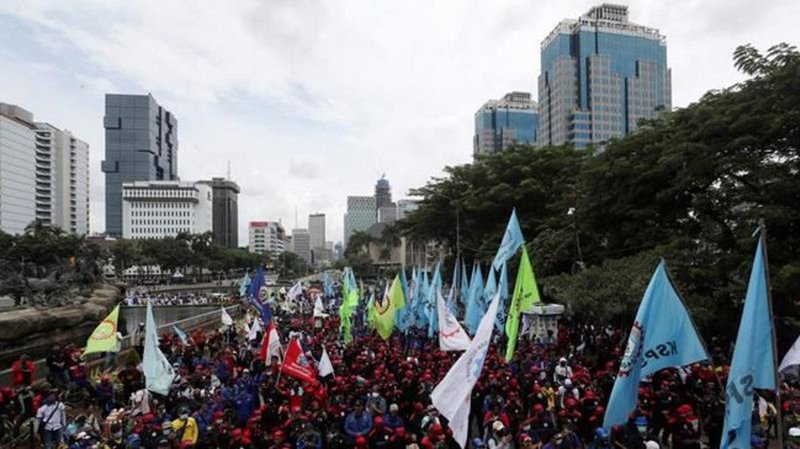
Thousands continue protests against Indonesia’s new jobs law
JAKARTA, Indonesia — Thousands of workers in Indonesia on Monday continued their protests against the country’s new jobs law that critics say will erode labour rights and weaken environmental protections.
The Confederation of Indonesian Trade Unions, or KSPI, said thousands of workers from cities in West Java and East Java provinces representing 32 labour unions took part in a mass rally near the Presidential Palace and constitutional Court in Jakarta.
Protests also took place in other parts of the country, including Yogyakarta, Banda Aceh, Medan and Makassar.
The protest in Jakarta, the capital, ended peacefully after labour union representatives delivered a written statement to the constitutional Court.


